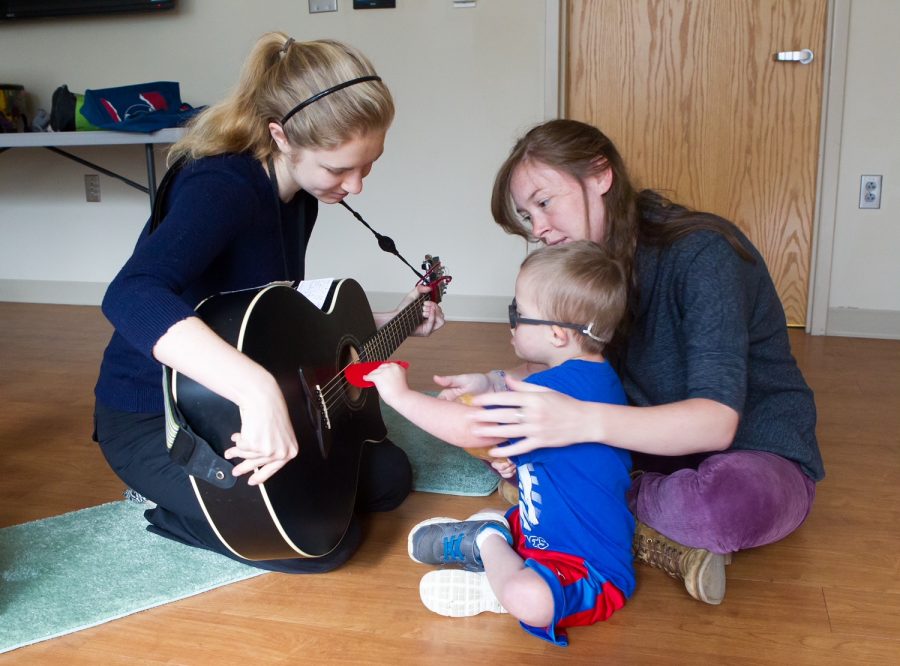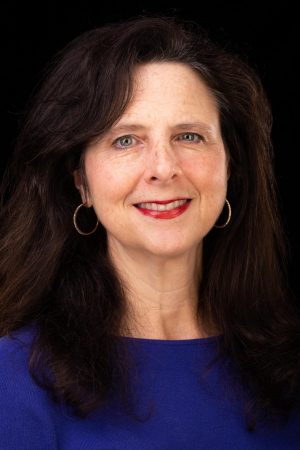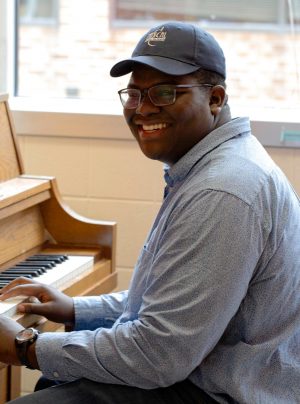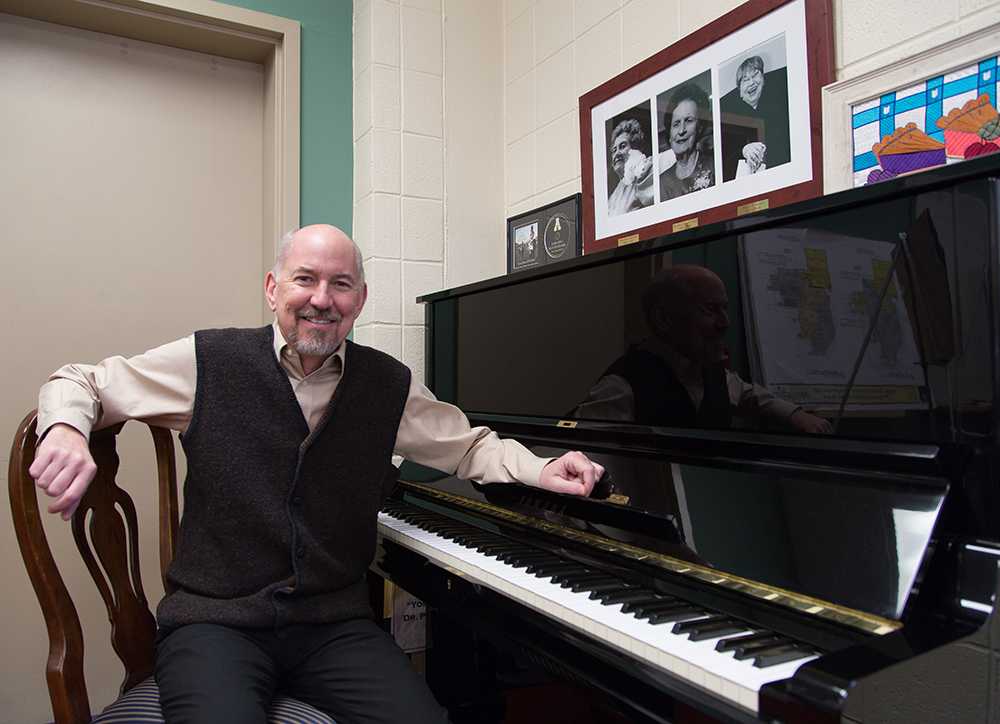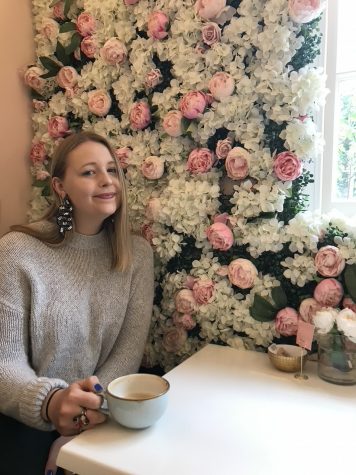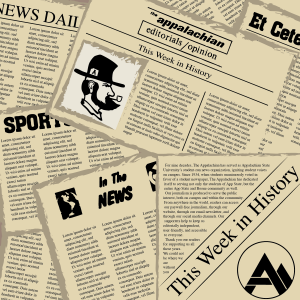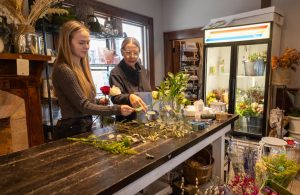Music Therapy Program goes virtual, offers free remote services
Students with a participant during a music therapy session before COVID-19. Now, the Bachelor of Music in Music Therapy program has taken its program virtual and offers free and remote music therapy.
February 11, 2021
When COVID-19 made its way to App State’s campus in spring 2020, departments across campus had to adapt quickly. The music therapy program, in particular, had a unique plan to promote the success of both their students and faculty.
The Bachelor of Music in Music Therapy program at App State is small and requires an audition, interview, internship and a six credit-hour practicum. The practicum happens in various settings across the community, from school classrooms and assisted-living facilities to behavioral and psychiatric centers.
However, singing and teaching in large groups has not been possible for the last 10 months. Dr. Christine Leist, an associate professor in the school of music, considered the idea of utilizing telehealth technology and offering free therapy in different ways.
Leist contacted The Children’s Playhouse, a learning and play center for children in Boone. The center advertised for the therapy group on social media, and overnight, registration was halfway full.
“It was a way to announce our services,” Leist said. “So that people who are looking at their Facebook page might see that ad and want to sign up for the group.”
On any given day last fall, students from the music therapy department could be found alongside a fellow classmate, clients and a certified board specialist on Zoom. In these rooms, they use what they have learned in their program to promote social skills, fine motor movements and other individual objectives.
Students curate their weekly lesson plans depending on the participant’s age, need and personal skills. Students might start off by leading a song to say “hello” or to learn each other’s names. As the weeks progress, they take the client’s needs and wants into consideration when designing a plan. For example, they might ask what genre of music they enjoy or who their favorite artist is.
“If they like ‘Frozen,’ maybe they are doing a song about counting, so they are counting images of Olaf,” Leist said.
Other ways they meet clients’ needs include learning sign language to sign with a song, using their hands to point to aid fine motor skills, and singing academic-based songs to help learn the alphabet or to count.
“Lots of music therapists will co-treat with other types of therapists… music is so intrinsically motivating that it latches people on in a way that they might not be willing to otherwise,” senior music therapy student Emme Hooks said.
Not only is music therapy beneficial to the students being able to work hands-on with clients, it also provides a service that is much needed in the community, according to Leist.
“We have been serving the community in public schools … the teachers are supportive and see the value from their class… It’s just another resource in Boone,” Leist said.
Before COVID, almost every classroom at Hardin Park School in Boone, and nursing homes and hospitals around the High Country received weekly sessions with a student in the program.
While the execution has changed, telehealth has allowed the program to expand beyond the High Country and venture into other parts of North Carolina. Students have been able to conduct their music therapy sessions in both Asheville and Huntersville, something that would not be possible without the wealth of new technology.
Another opportunity that has been opened up thanks to telehealth: the ability to treat children who they could not reach otherwise.
“Telehealth has really widened our reach, it has allowed people to receive resources in a time when money is strapped, if the parents worked and couldn’t bring their kids into sessions, they can do that now,” Hooks said.

